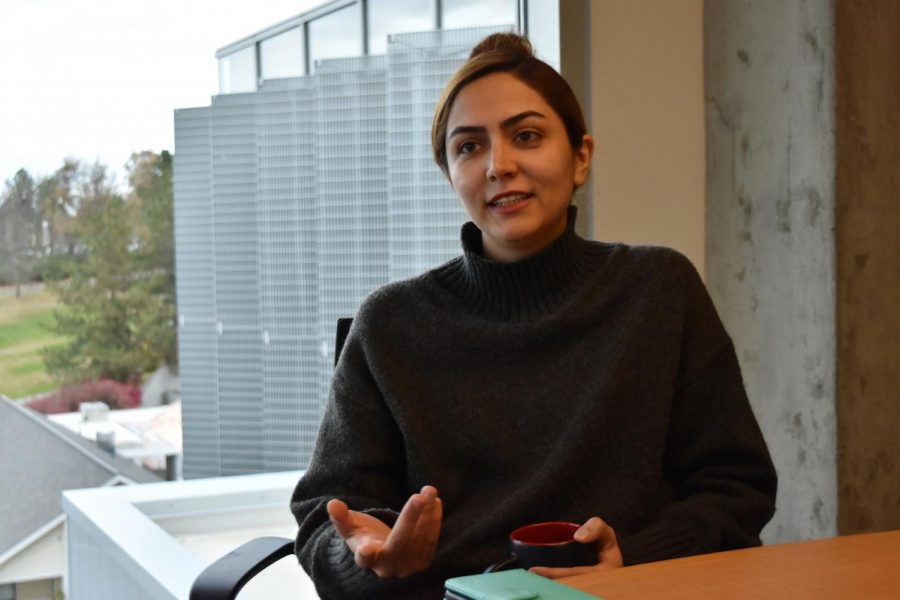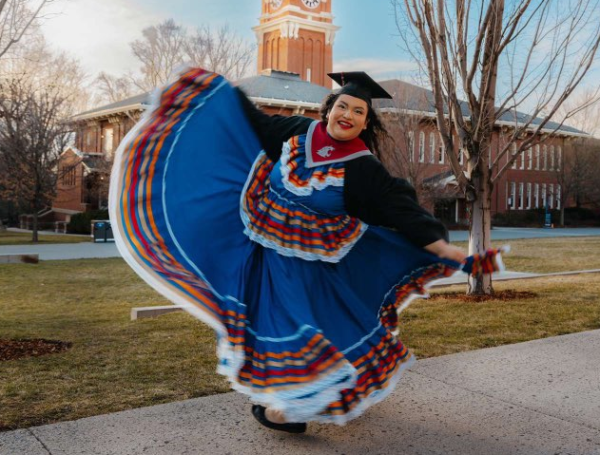Possible visa change sparks debate
Potential rule would increase pressure on international grad students seeking US degrees
JENIN REYES | THE DAILY EVERGREEN JENIN REYES | THE DAILY EVERGREEN
“You need to be an organization to have a detailed discussion about this,” graduate student Shima Bahramvash said, expressing concern about new policy considerations on visas for international students.
October 29, 2018
A proposed rule change by the Department of Homeland Security could make student visas have a fixed duration of time.
“Right now when you get [a student visa], it’s valid until your education is finished,” said Shima Bahramvash Shams, an international student working to get her doctorate in engineering science.
That means international students can come to the U.S. for their bachelor’s degree and stay in the U.S. until they get their doctorate without having to reapply.
The proposed rule is vague on how long international students would be able to stay in the U.S., Shams said.
She said if it’s established, a student that wants a master’s degree will get a specific amount of time they can stay in the U.S., but they may not be able to stay for longer than that fixed duration.
It is not clear how reapplying would work, she said. The proposed rule does not state what would happen if a student’s studies take longer than the given time limit or whether the time limit will be different for each degree, Shams said.
The proposed rule also does not have specific details on whether students will be able to send reapplication documents to the DHS offices or whether they will have to leave the U.S. and reapply for a student visa, she said.
If students do reapply, there is a possibility they may not get another visa, Shams said.
“It’s another sort of uncertainty,” she said. “There is no reason to do this, and it is very stressful and uncertain and jeopardizes the opportunity for many people here.”
One concern international students face is that the duration of time for the visa may be too short for each degree, she said.
The average undergraduate degree can be finished in four years, but for many students that does not happen. Similarly, a typical master’s degree is considered a two-year commitment, but many people do not finish within that time frame.
Earning a doctorate can be done in five years, Shams said, but some fields have more courses that must be completed, so it can take longer.
Milad Haddadi, an international student getting his doctorate in physics, said he thought his physics degree would take six years. One of the papers he published took longer to research than it was supposed to, so he will now graduate in seven years.
Haddadi said he would not like the rule change and if it had taken place when he was starting his doctorate work he is not sure if he could have finished his degree.
The rule change is discriminatory, Haddadi said.
“Based on statistics in the U.S., on average, it takes about six or five years [to finish a doctorate], so it would be discriminatory for international students,” he said. “Americans can be here without any cap.”
The proposed rule change will be in public discussion until Dec. 5. That means people or organizations can give their input on the change.
“Historically, individual comments are not taken that seriously,” Shams said. “You need to be an organization to have a detailed discussion about this.”
Once public discussion is over, the rule is supposed to be changed in a way that it takes public comments into account, she said. If a new rule is passed, it would become effective in September 2019.
Shams, an advocate for the National Association of Graduate-Professional Students, said the NAGPS wants to hear stories from people who would be affected by the proposed change to student visas so it can make a statement on how this rule would affect international students.
This article has been updated to correct the name of Shima Bahramvash Shams as her last name was previously left out.





















